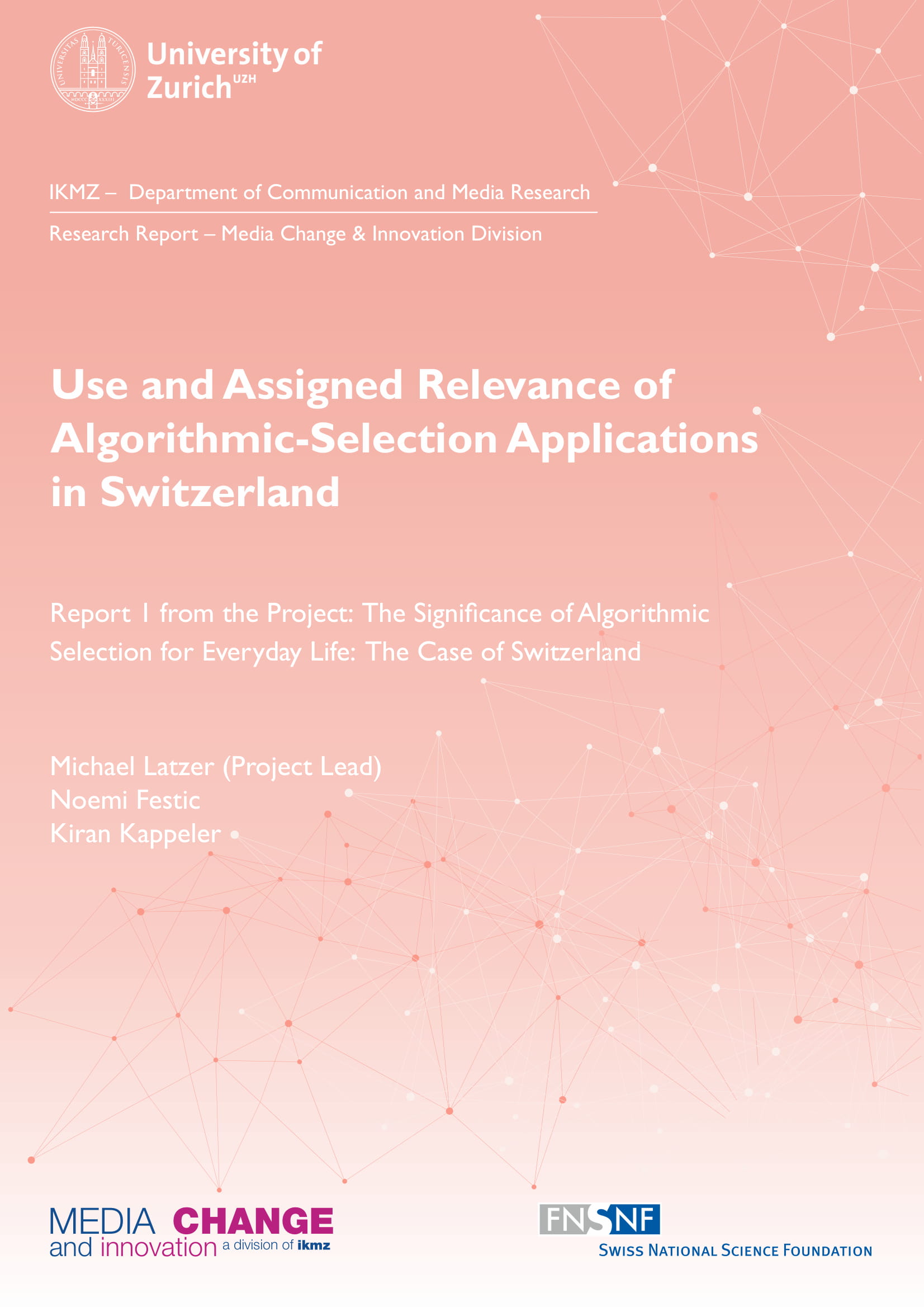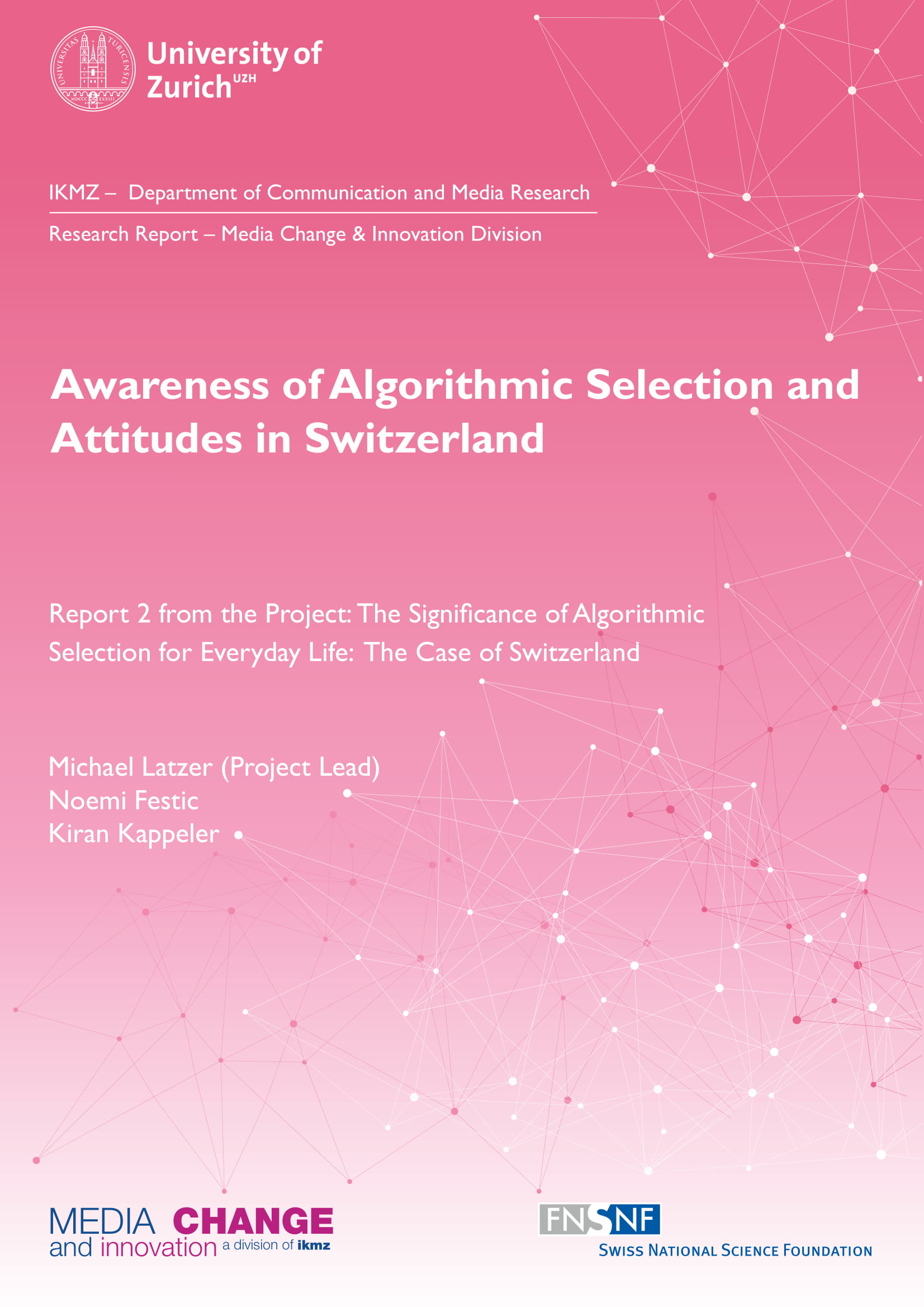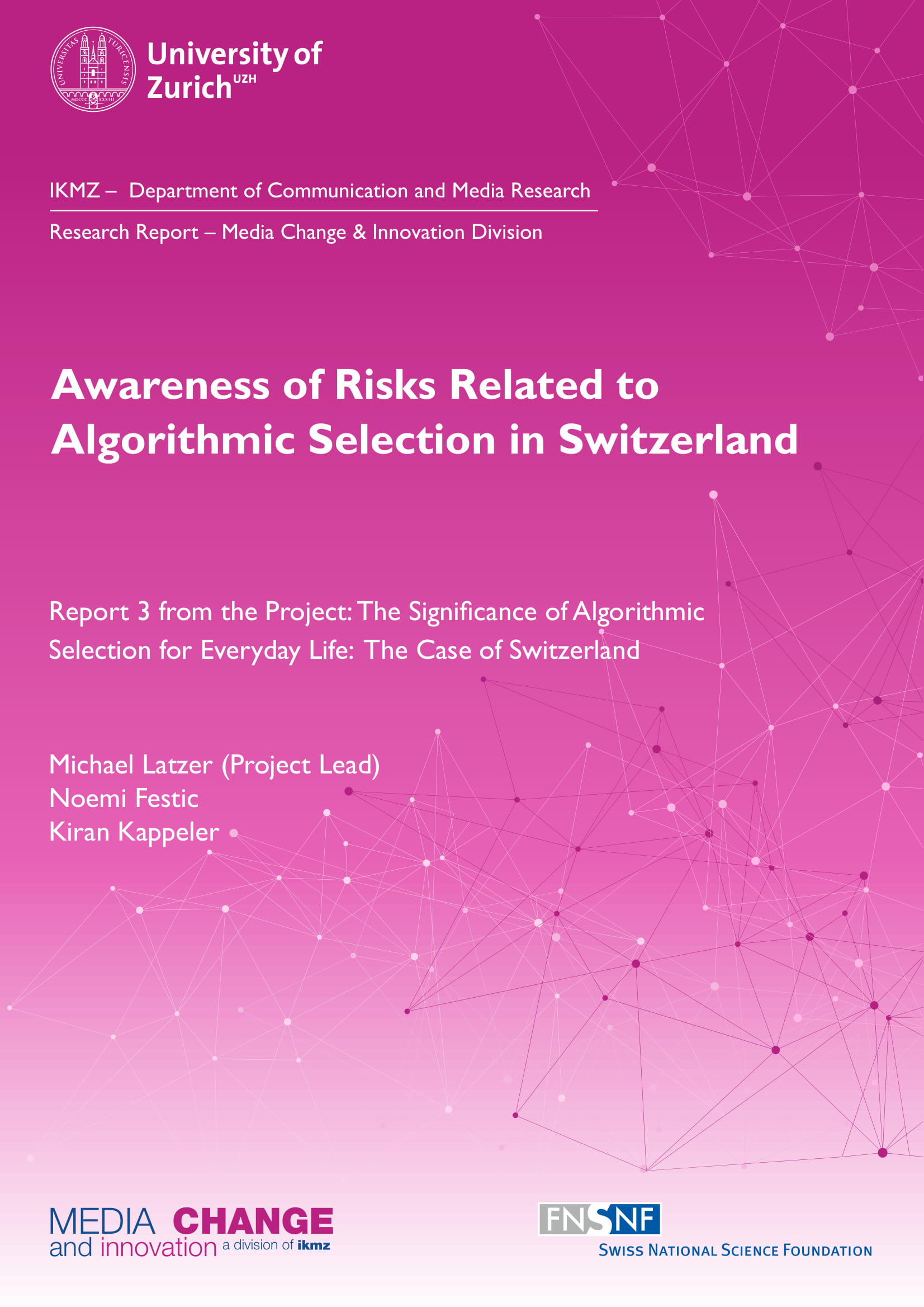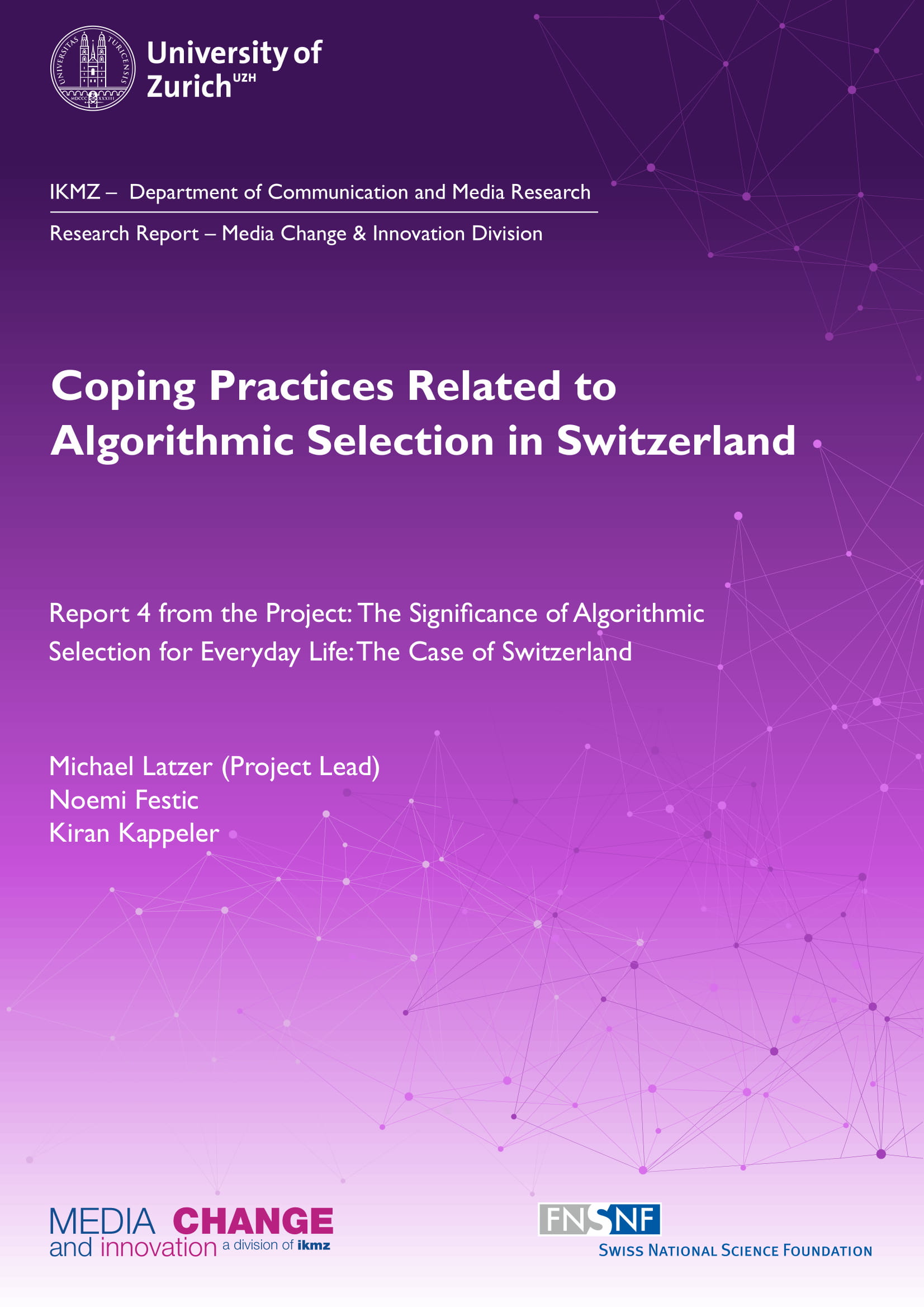Risk Factor "Algorithm”: Lack of Knowledge, Uncertainty and Desire for More Control in Switzerland
6th April 20Most internet users are confronted with algorithmic selection on a daily basis – but only some of them are aware of this. For example, two thirds (66%) realize that content displayed to them online is similar to what they have viewed in the past. Half of internet users (54%) sometimes feel that search results have been sorted specifically for them. Higher-educated and younger internet users more often report having such experiences with algorithms when using the internet. “Despite high daily use, there is astonishing ignorance. For instance, eight in ten do not know that their Facebook news feeds are curated by algorithms and not by humans,” explains Michael Latzer, Professor of Media Change & Innovation at the University of Zurich.
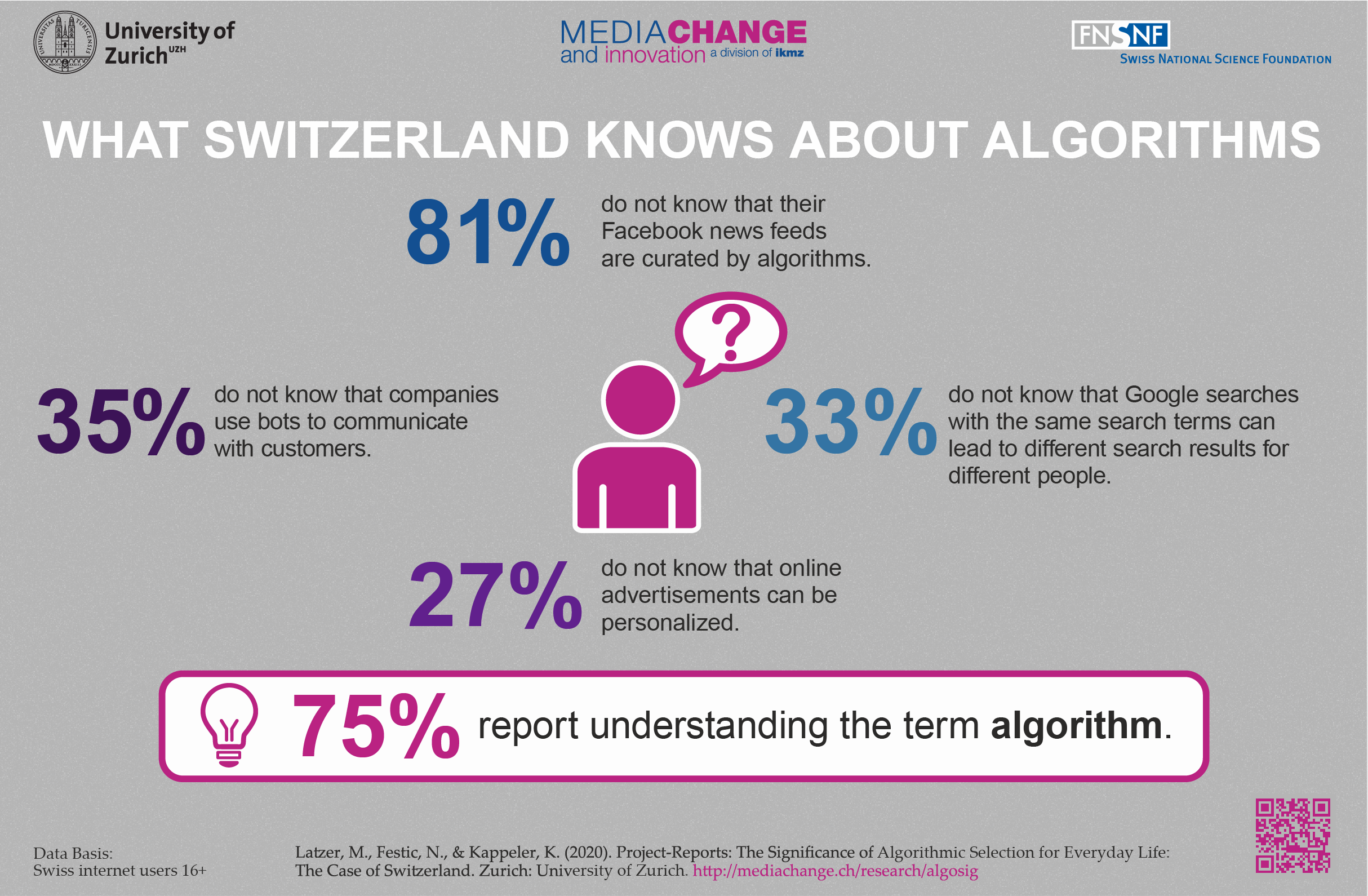
The survey further reveals that trust in algorithmic online services is low in Switzerland. Only a quarter of internet users (27%) state that they trust online services and just 14% consider most information on the internet to be trustworthy. If it were up to them, six out of ten users (59%) would not allow social media such as Facebook and Instagram any influence over topics that are important to them. A third (34%) also feel that they are completely losing control over their data on the internet. Such negative assessments tend to be more common among younger internet users. Six out of ten further believe that they have to accept that privacy no longer exists on the internet and 28% no longer even try to understand how services like Google Search work.
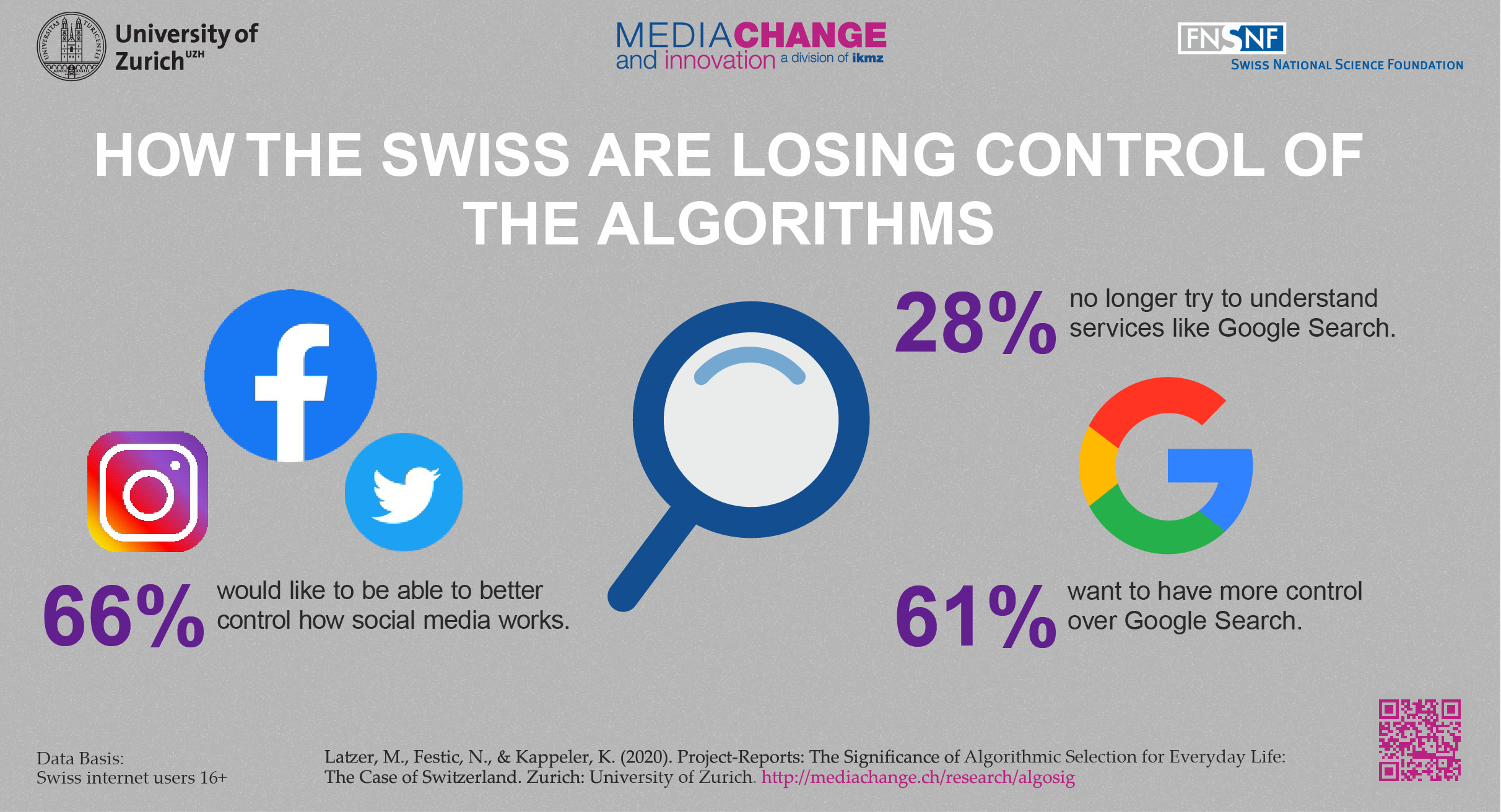
Michael Latzer summarizes: “It should not be neglected that the everyday life of average Swiss internet users is greatly influenced by algorithms, but they know little about them. This creates uncertainty in the population regarding the power of algorithms, results in low self-protection and a feeling of powerlessness. The resulting desire for more control and transparency must be taken seriously.”
Research Reports (Survey)
- Latzer, Michael / Festic, Noemi / Kappeler, Kiran (2020): Use and Assigned Relevance of Algorithmic-Selection Applications in Switzerland. Report 1 from the Project: The Significance of Algorithmic Selection for Everyday Life: The Case of Switzerland. Zurich: University of Zurich. http://mediachange.ch/research/algosig [forthcoming]
- Latzer, Michael / Festic, Noemi / Kappeler, Kiran (2020): Awareness of Algorithmic Selection and Attitudes in Switzerland. Report 2 from the Project: The Significance of Algorithmic Selection for Everyday Life: The Case of Switzerland. Zurich: University of Zurich. http://mediachange.ch/research/algosig [forthcoming]
- Latzer, Michael / Festic, Noemi / Kappeler, Kiran (2020): Awareness of Risks Related to Algorithmic Selection in Switzerland. Report 3 from the Project: The Significance of Algorithmic Selection for Everyday Life: The Case of Switzerland. Zurich: University of Zurich. http://mediachange.ch/research/algosig [forthcoming]
- Latzer, Michael / Festic, Noemi / Kappeler, Kiran (2020): Coping Practices Related to Algorithmic Selection in Switzerland. Report 4 from the Project: The Significance of Algorithmic Selection for Everyday Life: The Case of Switzerland. Zurich: University of Zurich. http://mediachange.ch/research/algosig [forthcoming]
News
Infographics
- How Switzerland uses algorithmic online services (English / German)
- How Switzerland uses algorithms to stay fit (English / German)
- What Switzerland knows about algorithms (English / German)
- How the Swiss are losing control of the algorithms (English / German)
- What the Swiss think about risks of algorithms and how they deal with them (English / German)
- Who in Switzerland is most vulnerable to risks of algorithms (English / German)
- What Switzerland thinks about the internet (English / German)
Selected Figures for Download
About the Project
The aim of the project “The Significance of Algorithmic Selection for Everyday Life: The Case of Switzerland” is to empirically investigate the significance of online applications that employ algorithmic selection for everyday life in Switzerland. The project evaluates use, awareness, risk awareness and protective behavior in five life domains: social and political orientation, commercial transactions, social interactions, entertainment and health.
The project is carried out by the Media Change & Innovation Division of the Department of Communication and Media Research (IKMZ) at the University of Zurich under the direction of Prof. Michael Latzer. It is based on a representative online survey of 1,202 internet users aged 16 and over, conducted by the LINK Institute from November 2018 to January 2019. The method-mix further included qualitative interviews and a representative tracking of the respondents’ internet usage behaviour using passive metering software. The project is supported by the Swiss National Science Foundation (SNF).

